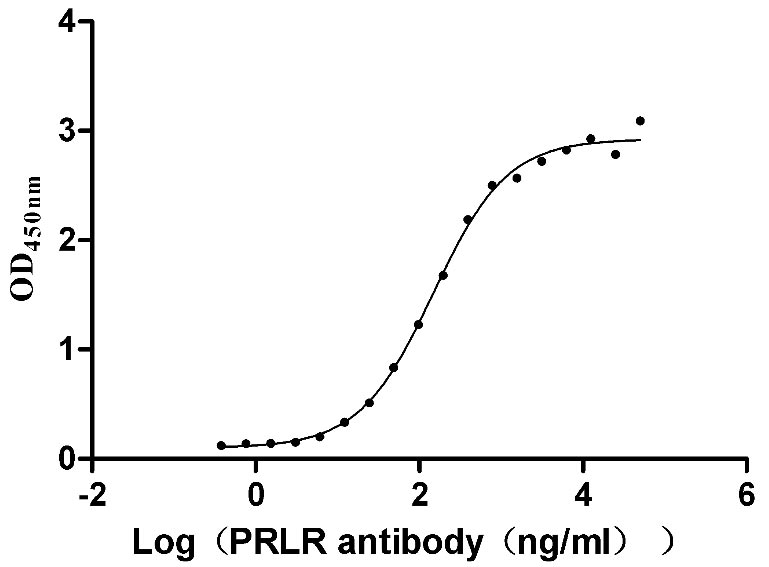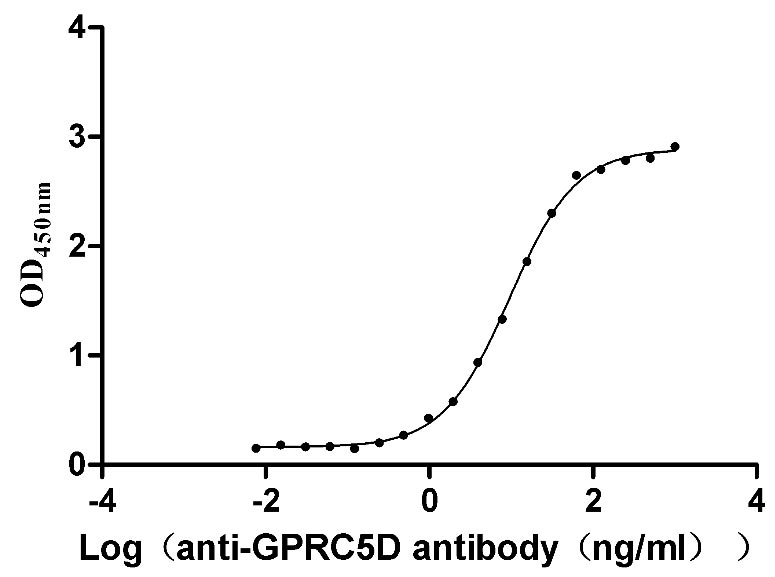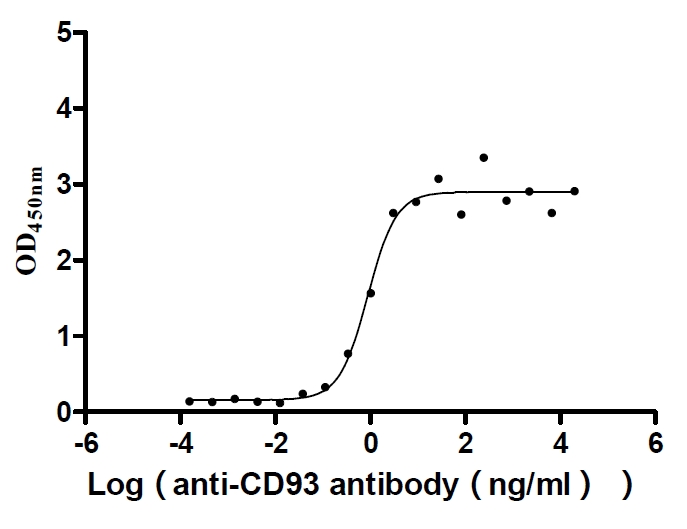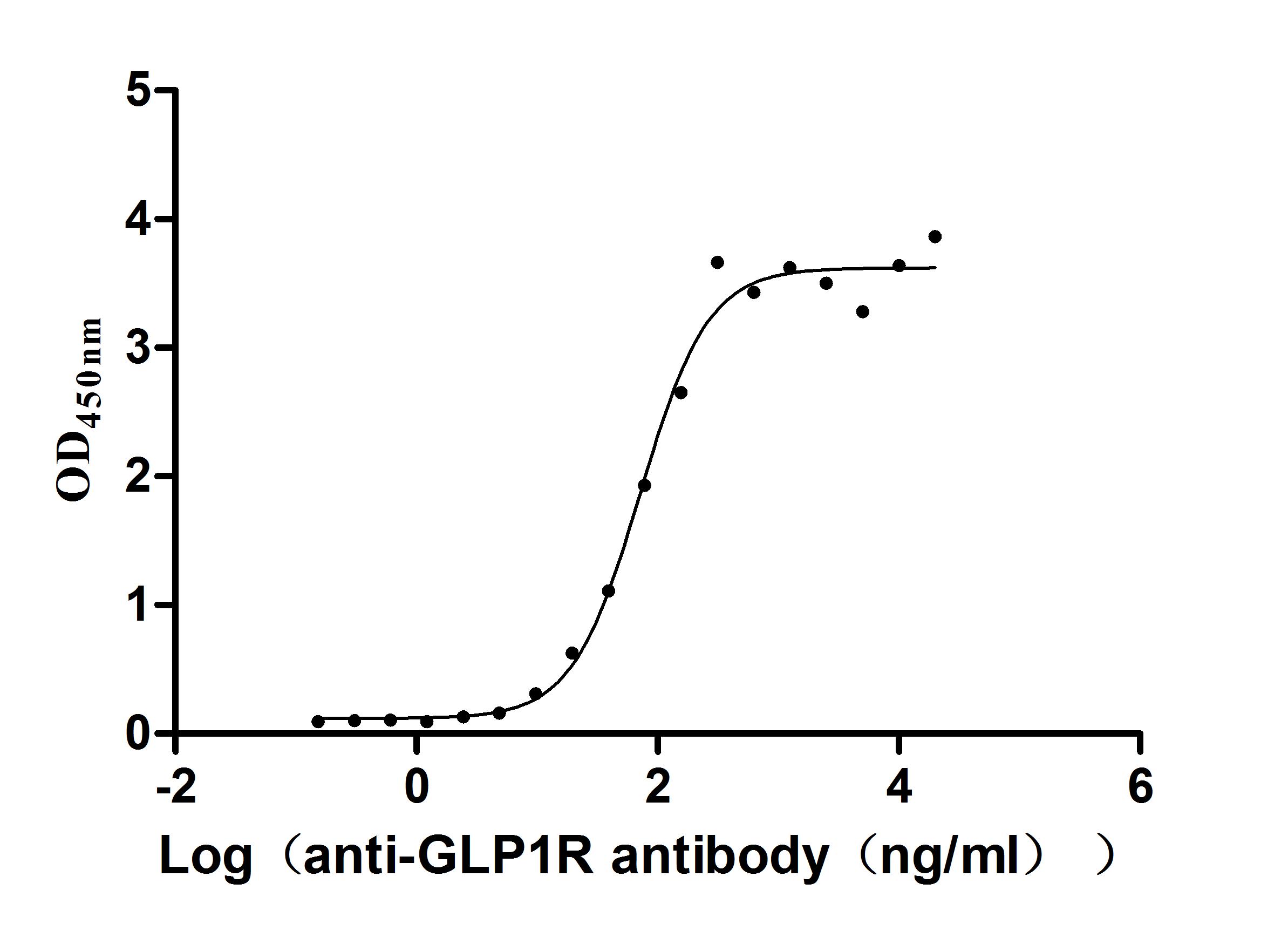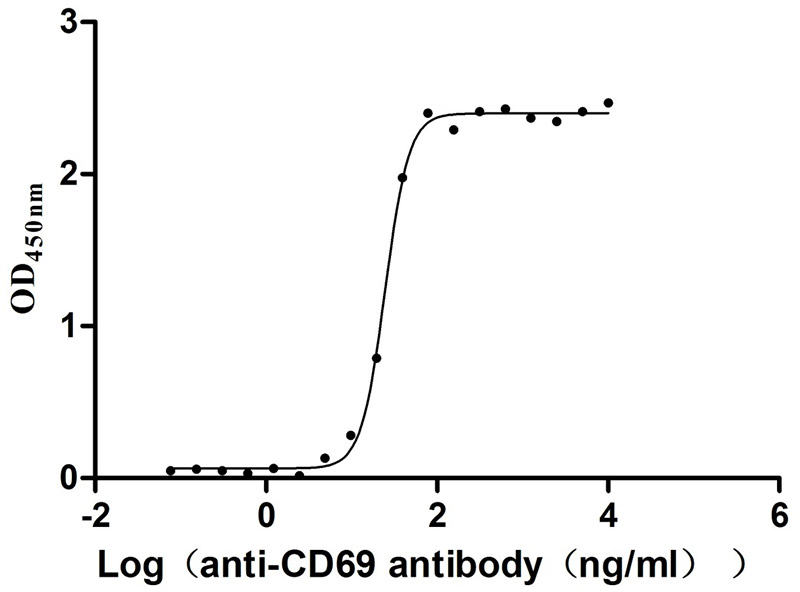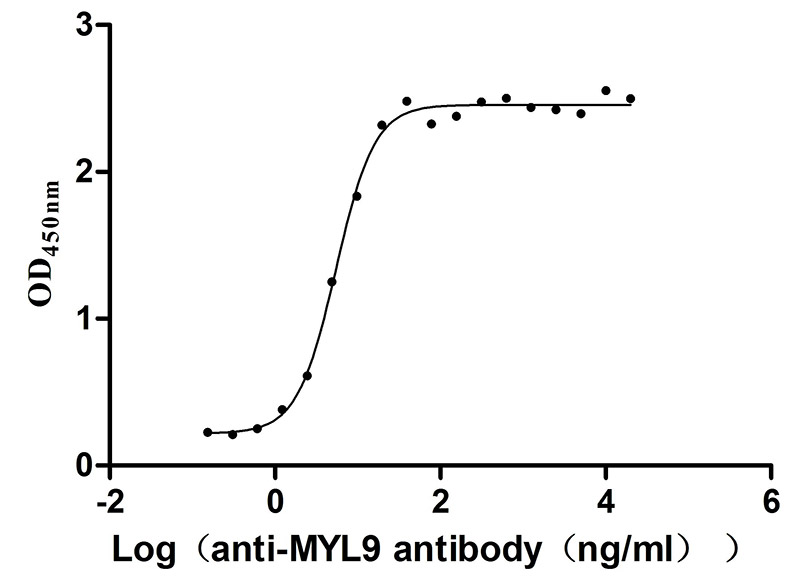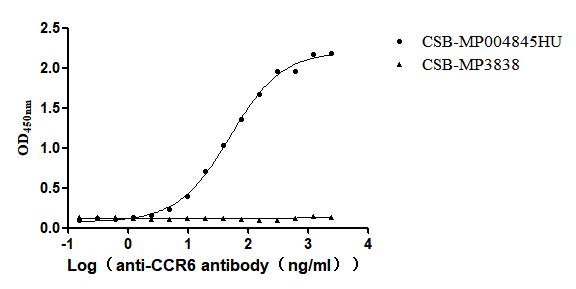Recombinant Human Polypyrimidine tract-binding protein 2 (PTBP2)
-
中文名称:人PTBP2重组蛋白
-
货号:CSB-YP892133HU
-
规格:
-
来源:Yeast
-
其他:
-
中文名称:人PTBP2重组蛋白
-
货号:CSB-EP892133HU
-
规格:
-
来源:E.coli
-
其他:
-
中文名称:人PTBP2重组蛋白
-
货号:CSB-EP892133HU-B
-
规格:
-
来源:E.coli
-
共轭:Avi-tag Biotinylated
E. coli biotin ligase (BirA) is highly specific in covalently attaching biotin to the 15 amino acid AviTag peptide. This recombinant protein was biotinylated in vivo by AviTag-BirA technology, which method is BriA catalyzes amide linkage between the biotin and the specific lysine of the AviTag.
-
其他:
-
中文名称:人PTBP2重组蛋白
-
货号:CSB-BP892133HU
-
规格:
-
来源:Baculovirus
-
其他:
-
中文名称:人PTBP2重组蛋白
-
货号:CSB-MP892133HU
-
规格:
-
来源:Mammalian cell
-
其他:
产品详情
-
纯度:>85% (SDS-PAGE)
-
基因名:
-
Uniprot No.:
-
别名:brPTB; FLJ34897; MIBP; Neural polypyrimidine tract binding protein; Neural polypyrimidine tract-binding protein; Neurally enriched homolog of PTB; Neurally-enriched homolog of PTB; nPTB 5; nPTB 6; nPTB 7; nPTB 8; nPTB; nPTB5; nPTB6; nPTB7; nPTB8; Polypyrimidine tract binding protein 2; Polypyrimidine tract-binding protein 2; PTB; PTB like; PTB like protein; PTB-like protein; PTBLP; PTBP 2; Ptbp2; PTBP2_HUMAN; Splicing regulator
-
种属:Homo sapiens (Human)
-
蛋白长度:full length protein
-
表达区域:1-531
-
氨基酸序列MDGIVTEVAV GVKRGSDELL SGSVLSSPNS NMSSMVVTAN GNDSKKFKGE DKMDGAPSRV LHIRKLPGEV TETEVIALGL PFGKVTNILM LKGKNQAFLE LATEEAAITM VNYYSAVTPH LRNQPIYIQY SNHKELKTDN TLNQRAQAVL QAVTAVQTAN TPLSGTTVSE SAVTPAQSPV LRIIIDNMYY PVTLDVLHQI FSKFGAVLKI ITFTKNNQFQ ALLQYGDPVN AQQAKLALDG QNIYNACCTL RIDFSKLVNL NVKYNNDKSR DYTRPDLPSG DGQPALDPAI AAAFAKETSL LAVPGALSPL AIPNAAAAAA AAAAGRVGMP GVSAGGNTVL LVSNLNEEMV TPQSLFTLFG VYGDVQRVKI LYNKKDSALI QMADGNQSQL AMNHLNGQKM YGKIIRVTLS KHQTVQLPRE GLDDQGLTKD FGNSPLHRFK KPGSKNFQNI FPPSATLHLS NIPPSVAEED LRTLFANTGG TVKAFKFFQD HKMALLQMAT VEEAIQALID LHNYNLGENH HLRVSFSKST I
-
蛋白标签:Tag type will be determined during the manufacturing process.
The tag type will be determined during production process. If you have specified tag type, please tell us and we will develop the specified tag preferentially. -
产品提供形式:Lyophilized powder
Note: We will preferentially ship the format that we have in stock, however, if you have any special requirement for the format, please remark your requirement when placing the order, we will prepare according to your demand. -
复溶:We recommend that this vial be briefly centrifuged prior to opening to bring the contents to the bottom. Please reconstitute protein in deionized sterile water to a concentration of 0.1-1.0 mg/mL.We recommend to add 5-50% of glycerol (final concentration) and aliquot for long-term storage at -20℃/-80℃. Our default final concentration of glycerol is 50%. Customers could use it as reference.
-
储存条件:Store at -20°C/-80°C upon receipt, aliquoting is necessary for mutiple use. Avoid repeated freeze-thaw cycles.
-
保质期:The shelf life is related to many factors, storage state, buffer ingredients, storage temperature and the stability of the protein itself.
Generally, the shelf life of liquid form is 6 months at -20°C/-80°C. The shelf life of lyophilized form is 12 months at -20°C/-80°C. -
货期:Delivery time may differ from different purchasing way or location, please kindly consult your local distributors for specific delivery time.Note: All of our proteins are default shipped with normal blue ice packs, if you request to ship with dry ice, please communicate with us in advance and extra fees will be charged.
-
注意事项:Repeated freezing and thawing is not recommended. Store working aliquots at 4°C for up to one week.
-
Datasheet :Please contact us to get it.
相关产品
靶点详情
-
功能:RNA-binding protein which binds to intronic polypyrimidine tracts and mediates negative regulation of exons splicing. May antagonize in a tissue-specific manner the ability of NOVA1 to activate exon selection. In addition to its function in pre-mRNA splicing, plays also a role in the regulation of translation.; Reduced affinity for RNA.
-
基因功能参考文献:
- It has been established that PTBP1 and PTBP2 are members of a family of cryptic exon repressors. PMID: 27681424
- PTBP1 and PTBP2 impaired autoregulation of SRSF3 in oral squamous cell carcinoma cancer cells. PMID: 26416554
- Data show that polypyrimidine tract-binding proteins nPTB and ROD1 interact with mitochondrial tRNA(Thr) in the cytoplasm outside of mitochondria. PMID: 26657638
- In T98G glioma cells, the level of sumoylated PTBP2 was reduced compared to that of normal brain cells. Overall, this study shows that PTBP2 is posttranslationally modified by SUMO1. PMID: 24286314
- MALAT1 binds to SFPQ releasing PTBP2 from the SFPQ/PTBP2 complex, the increased SFPQ-detached PTBP2 promotes cell proliferation and migration in colorectal cancer. PMID: 25025966
- Defining the multifunctional roles of PTB will contribute to the understanding of key regulatory events in gene expression. PMID: 24264039
- Changes in miR-223/PTBP2 pathway could contribute of abnormal splicing in chronic myeloid leukemia. PMID: 23174904
- Regulation of the mutually exclusive exons 8a and 8 in the CaV1.2 calcium channel transcript by polypyrimidine tract-binding protein. PMID: 21282112
- present fluorescence, NMR, and in vivo splicing data in support of a role of PTB in inducing RNA loops. We show that the RNA recognition motifs (RRMs) 3 and 4 of PTB can bind two distant pyrimidine tracts and bring their 5' and 3' ends in close proximity PMID: 20160105
- The nPTB proximal promoter, although rich in G+C content and presenting putative binding sites for the transcription factors Sp1, NF-1, NF-kB and Oct-1, lacks a typical TATA box. PMID: 16002244
- Study shows that PTB can function as an anti-repressor molecule to counteract the splicing inhibitory activity of SRp30c. PMID: 17548433
显示更多
收起更多
-
亚细胞定位:Nucleus.
-
组织特异性:Mainly expressed in brain although also detected in other tissues like heart and skeletal muscle. Isoform 1 and isoform 2 are specifically expressed in neuronal tissues. Isoform 3 and isoform 4 are expressed in non-neuronal tissues. Isoform 5 and isoform
-
数据库链接:
HGNC: 17662
OMIM: 608449
KEGG: hsa:58155
STRING: 9606.ENSP00000412788
UniGene: Hs.596061
Most popular with customers
-
Recombinant Human Prolactin receptor (PRLR), partial (Active)
Express system: Mammalian cell
Species: Homo sapiens (Human)
-
Recombinant Human G-protein coupled receptor family C group 5 member D (GPRC5D)-VLPs (Active)
Express system: Mammalian cell
Species: Homo sapiens (Human)
-
Recombinant Human Complement component C1q receptor (CD93), partial (Active)
Express system: Mammalian cell
Species: Homo sapiens (Human)
-
Recombinant Human Glucagon-like peptide 1 receptor (GLP1R), partial (Active)
Express system: Mammalian cell
Species: Homo sapiens (Human)
-
Recombinant Human Early activation antigen CD69 (CD69), partial (Active)
Express system: Mammalian cell
Species: Homo sapiens (Human)
-
Recombinant Human Myosin regulatory light polypeptide 9 (MYL9) (Active)
Express system: Yeast
Species: Homo sapiens (Human)
-
Recombinant Macaca fascicularis CUB domain containing protein 1 (CDCP1), partial (Active)
Express system: Mammalian cell
Species: Macaca fascicularis (Crab-eating macaque) (Cynomolgus monkey)
-
Recombinant Human C-C chemokine receptor type 6(CCR6)-VLPs (Active)
Express system: Mammalian cell
Species: Homo sapiens (Human)


